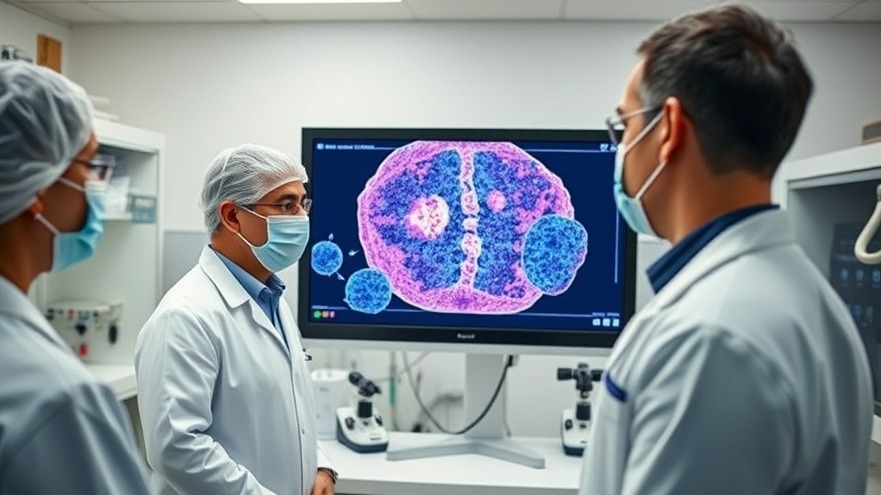
Unlocking Genetic Mysteries of Glioblastoma
The recent study by clinicians at Johns Hopkins Kimmel Cancer Center demonstrates a groundbreaking approach to understanding glioblastoma, a particularly vicious form of brain cancer. By employing a combination of laboratory techniques to analyze tumor samples obtained via needle biopsies, researchers aim to unveil the intricate interactions that occur within tumor biology. These advanced methods, including single-cell RNA sequencing and proteomics, are redefining how medical professionals gather knowledge from limited tissue samples, broadening the diagnostic scope beyond conventional methodologies.
Recent Innovations in Laboratory Techniques
Traditionally, biopsies limit the size of tumor samples due to the inherent risks of sedation and surgical procedures. This study changes the paradigm by integrating new techniques during biopsies, significantly enhancing the depth of biological understanding. With techniques like metabolomics, which studies chemical processes within cells, and immune profiling, researchers are opening doors to innovative treatment pathways and personalized medicine.
Impacts Beyond Brain Cancer
The implications of this research extend beyond glioblastoma. The collaborative insights gained can now serve as a template for investigating other cancer types, amplifying knowledge about tumor biology and treatment responses. As stated by Chetan Bettegowda, co-author of the study, this integrative approach heralds contributions that have the potential to revolutionize the management of various malignancies, fostering novel therapeutic strategies tailored to individual patients.
The Future of Tumor Analysis
By fostering a more profound understanding of the molecular pathways and immune interactions at play in cancer, this methodology promises to steer oncological research into a new era. Enhanced analysis techniques allow physicians to identify which treatments might be more effective based on a patient's unique tumor profile, thus facilitating more effective, targeted therapies. As a concierge health practitioner, staying updated on these advancements not only supports better patient outcomes but also positions your practice at the forefront of medical innovation.
Considerations for Clinical Practice
For health practitioners, the adoption of sophisticated laboratory techniques presents both opportunities and challenges. Understanding these methods can empower you to improve clinical decision-making, enhance treatment efficacy, and offer personalized patient care. Moreover, equipping your practice with knowledge of advanced diagnostic solutions can build patient trust and bolster your professional reputation as a leader in contemporary medical practices.
Practical Insights for Implementation
To effectively incorporate these insights into your practice, consider investing in continuing medical education or engaging with specialized oncology consultants who can guide you in integrating these laboratory techniques into your patient care protocols. Stay informed about emerging research through workshops, seminars, or medical journals focused on oncological advancements.
Call to Action
The evolving landscape of cancer diagnostics and treatments is intricate yet filled with potential for transformative patient care. As a concierge health practitioner, understanding the value of combining various laboratory techniques will enhance your practice’s ability to provide cutting-edge solutions to patients. Embrace these advancements and consider collaborating with oncology specialists to optimize treatment plans in line with the latest findings.
 Add Row
Add Row  Add
Add 




Write A Comment